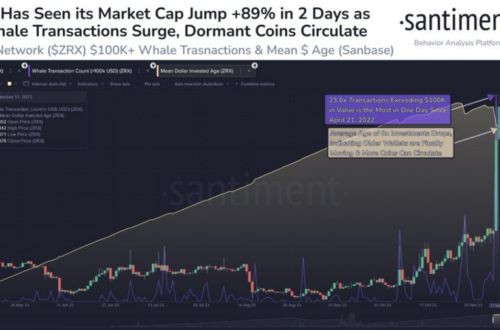The cryptocurrency market is attracting more and more people who want to capitalize on the price fluctuations of digital assets. However, not all of them know how to properly analyze the market, select promising projects and manage risks. In this article, we will share with you the advice of well-known investor and crypto trader Austin Arnold, who has over a million subscribers on YouTube.
Don’t Miss Opportunities
One of Austin Arnold’s top tips is not to miss the opportunities that the cryptocurrency market provides. He claims that in 2022 we will see many new projects that can give huge returns to those who invest in them. He lists six such projects: Polkadot (DOT) , Cardano (ADA), Solana (SOL) , Avalanche (AVAX), Chainlink (LINK), and Polygon (MATIC). He believes that these projects have a high potential for development and innovation in the field of blockchain and decentralization.
Follow the best
Another tip from Austin Arnold is to follow the best traders and analysts in the crypto space. He recommends following their social media and YouTube channels to stay up to date on what cryptocurrencies they buy or sell, what strategies they use, and what news they follow. Among such traders, he names Peter Brandt, Tony Weiss, Michael Van De Popp, Scott Melker and others.
Manage risk
Finally, the third tip from Austin Arnold is to manage risk. He recalls that the cryptocurrency market is very volatile and unpredictable, so you need to be prepared for any scenario.
He advises not to invest more than you can afford to lose; do not keep all your funds in one cryptocurrency; use stop losses to protect your capital; do not give in to panic or greed; study fundamental and technical factors; diversify your portfolio.
Is there a future for cryptocurrencies?
Cryptocurrencies are digital money that are not controlled by any central authority and operate on the basis of blockchain technology. They represent an alternative to traditional financial systems and have a number of advantages: speed, transparency, security, decentralization and globality.
But is there a future for cryptocurrencies? Can we expect them to become widespread and accepted means of payment? Or will they remain niche assets for speculation and investment?
There is no single answer to these questions, since much depends on the development of technology, regulation, supply and demand in the market.


